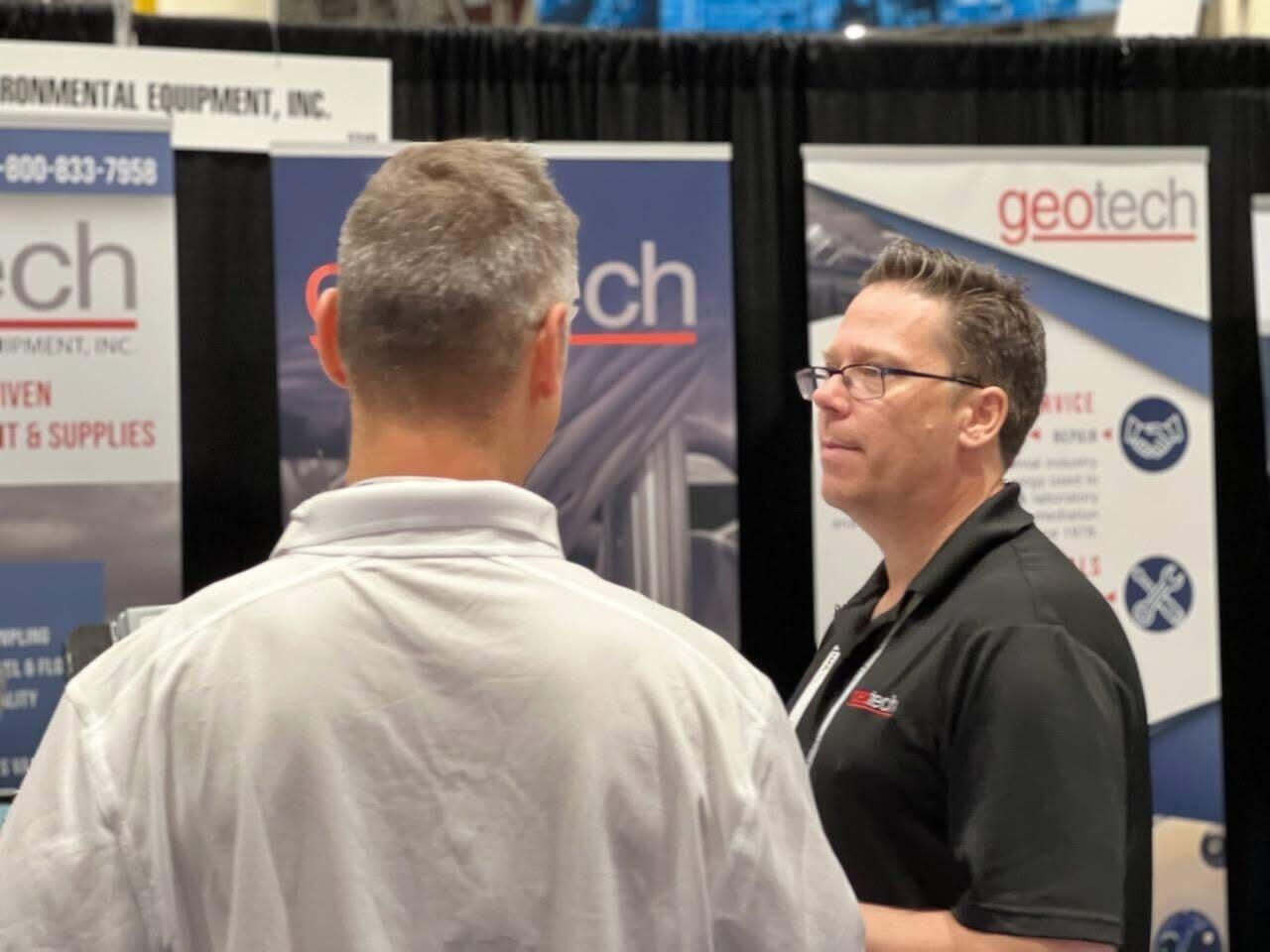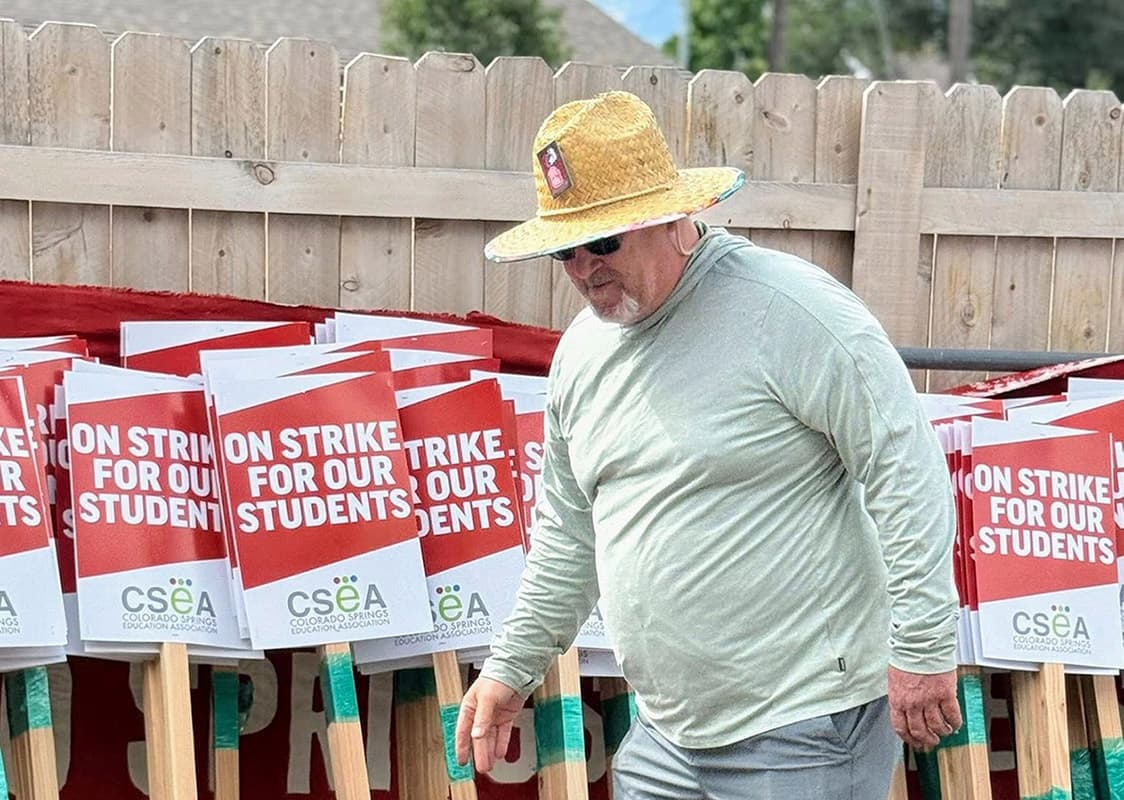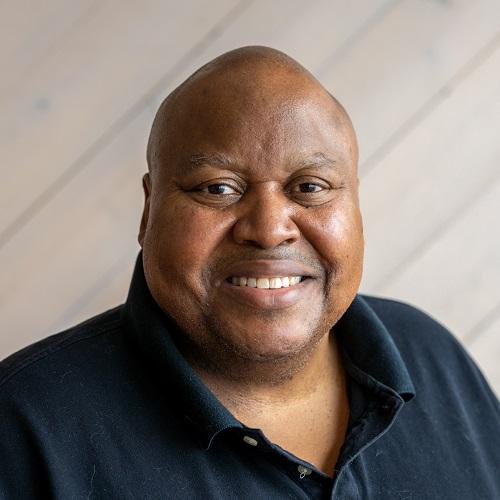
It seems tariffs are making headlines every day. They’re on. They’re off. They’re bigger than ever. No, they’re paused. Just yesterday, President Donald Trump extended the deadline to reach a deal with Mexico by 90 days. The twists and turns are hard to follow. But business leaders are already paying the costs. And that means, eventually, everybody else will likely pay the cost, too.
Jeff Popiel is the president and CEO of Geotech, a homegrown Denver company that manufactures environmental testing equipment. He says of the tariffs, “It’s been reciprocal. So we're paying more for the components used to manufacture the product. And then we're also, when we export it, the product's now more expensive for our customer because they're paying tariffs to receive it as well.”
Popiel shared an insider’s view of how businesses are responding to tariffs with Colorado Matters senior host, Ryan Warner. Popiel is also on the board of directors of Denver’s World Trade Center.
This interview has been edited for length and clarity.
Ryan Warner: Dial in on one piece of environmental testing equipment that you make and connect it to tariffs for us. Will you?
Jeff Popiel: So we make a product to remediate or get oil, gas and diesel out of groundwater. So the majority of our environmental products are made to help clean the environment up after there's been a spill. It's like kids with milk. We make products to clean it up, to keep the soil, groundwater, and air clean and able to use.
Warner: So this product, if water gets contaminated with a fossil fuel, I guess is able to extract that. Is it a filter?
Popiel: Yes, we use a filter down well that's able to separate the hydrocarbons from the water. It’s called the Solar Sipper.
Warner: Does it run on solar power?
Popiel: Yeah. So we can use clean energy to clean up a fossil fuel spill.
Warner: And this process involves drilling a well, you're inserting something into that well.
Popiel: Correct. So we'd lower the skimmer and a pump to pump the hydrocarbons from the groundwater to the surface.
Warner: Okay. If I am downstream from that, I feel pretty grateful for that product, I guess if I care about the river or lake or drinking water. And how is it connected to tariffs?
Popiel: Basically that product that we manufacture here in Denver, Colorado in a 125,000 square foot facility. It's an old Ford parts distribution facility. So we feel like we sort of recycled an old building and we're making environmental equipment in it.
Warner: But I am going to guess that some of the inputs for that come from abroad.
Popiel: Correct. There's a circuit board inside of that. So a lot of the components come from other countries, and then we assemble those products and apply our software and design to be able to make the complete product that we then re-export to the same countries where we purchased the components from.
Warner: And how would you say you've been affected thus far?
Popiel: It’s been reciprocal. So we're paying more for the components used to manufacture the product. And then we're also, when we export it, the product's now more expensive for our customer because they're paying tariffs to receive it as well.
Warner: How are you feeling about this particular inflection point?
Popiel: I think pretty uncertain in the sense that there's some uncertainty around it, but also I think it's narrowed down to there's going to be tariffs. They're going to be reciprocal. So it's becoming more and more known what's going to happen. So I think it's more predictable than it was this spring.
Warner: I think the uncertainty theme is just an echo I've heard from business, and it surprises me in part because we hear from the administration that it's a business-minded administration, and yet business thrives on some amount of certainty and being able to plan. Have you had trouble squaring that?
Popiel: Absolutely. So it's taken all your time and energy when you're just trying to order components to make your product. The time involved in managing the uncertainty is keeping us from focusing on creating innovative products for our customers and offering better service to our customers. So it's a big distraction. It's a time suck.
Warner: What's fascinating in your case and why I'm so glad you're speaking with us is that you do manufacture in the United States. The stated goal of the tariffs is to re-home more manufacturing from abroad. I think it's really important to understand how this is affecting you as someone who already does, but you are not everyone. So now have you put that other hat on with the World Trade Center? Do you foresee that rehoming occurring among other folks?
Popiel: It's hard to say. We source a lot of components from everywhere. We make a lot of parts in house in our own machine shops, but we buy from other companies. So it's easier for us to buy from another company in Denver or Colorado or in the region. And then if not, we try to buy from North America, the Western hemisphere, and then anywhere in the world. So the further away you buy or source a component, the more complex it gets. And so the components that we're sourcing internationally or from Asia, they're difficult, if not impossible to find here. So I think a lot of the stated goal to rehome or bring manufacturing back, we have to be clear on what exact industries we really want to bring back. Do we have the skillset in terms of the labor to be able to perform those jobs, and the natural resources to be able to supply those industries?
Warner: This is not going to happen overnight. I hear you saying that now. Well, there might be some manufacturing coming back to the United States, but this would not be quick.
Popiel: Correct. So if I have to fill an order this week or later this year and it has aluminum or steel parts in it, the tariff on aluminum, steel, we're just going to have to pay that tariff because the local supply chain from the steel mills doesn't exist yet. They're already at capacity.
Warner: So do you have hopes for more domestic manufacturing?
Popiel: I believe so. I believe we'll grow some manufacturing jobs. We just have to be clear as a country, which ones do we really want to bring back.
Warner: You don't hear or see that clarity right now.
Popiel: I think in Colorado we've got a great mix and have had for a couple years with the Colorado Office of Economic Development and International Trade. They've funded and targeted clean energy and advanced manufacturing segments.
Warner: And what about on the federal level? Is it as clear?
Popiel: Not to me, it doesn't seem as clear right now.
Warner: So I want to know if it's worth it to you. This is a short-term headache. I mean, headache is actually, that feels like I'm understating it. But are you okay with the short-term obstacles for a potential long-term gain?
Popiel: That's a tough one. Right. So for us, the supply chain and the deliverables of meeting orders, it's been pretty hectic the last couple of years. It almost feels like going through COVID again with the supply chain disruption. So we feel a little bit skilled because we've gone through this in COVID, so it's almost the exact same exercise of, how do you find parts to make your current products from different components from different places?
Warner: The comparison of tariffs is the new COVID is not a sparkling endorsement of them.
Popiel: No. It's a pain in the rear. And I think as a business owner, I write and sign the checks to pay for tariffs. It's clear that the tariff to me is just a tax. So if globally the countries have decided that it's okay to tax trade, that's what we've done. A blanket tariff isn't targeted, it's not strategic, it's just a tax. All we're doing is making things more expensive for the end consumers.
Warner: So you're dealing with the tariffs on one hand and then on another. My understanding is that a lot of your environmental testing equipment relies on the work of government monitors who safeguard our air and water. So how's that going?
Popiel: Yeah, so we're busy with the tariff on the supply side. It's complicated how we're going to get parts to make stuff. And then it's also uncertain on how we're going to sell or who we're going to be selling our products to. We sell to the US Environmental Protection Agency and to the US Geological Survey and the Corps of Engineers. And those groups are also working with the private sector to interpret the current laws and regulations for where the environmental standards are.
It's uncertain because a lot of those folks have lost their jobs, they're not there, and people are hesitating to know what direction they should take.
And there could be a positive side where if you think about the environment just in general, there's a lot of discussion that the administration doesn't care about the environment pulling out of the Paris Climate Accord or all the cutbacks as it relates to temperature and carbon.
And so at a base level, the environmental equipment that we sell is focused more on toxicity, so hydrocarbons and water, heavy metals and soil. So how do we as a group of citizens when the Clean Air and Clean Water Act passed, we're saying that we want to breathe clean air and we want to drink clean water and have clean soil to grow food in. If that's in place and we're not studying carbon and temperature, there could be more funding related to ensuring that there's not toxicity in the groundwater and soil. If that maintains a priority, there could be more funding related to that. And the good part is if we do clean up those toxic things, those will also have a positive impact on carbon and temperature.
Warner: Are you kind of thanking your lucky stars that you are not in decarbonization right now?
Popiel: For sure. Yeah. There's a lot of industries that are way more impacted by what's going on than we are, but definitely we've got to be agile. We've got to pivot. We've got to be open to change and look at different avenues to get our products to market.
Warner: I think we can all agree no one wants oil in their breakfast cereal, correct?
Popiel: Yes. Yep.
Warner: Okay. Now your third hat, which is spouse, because my understanding is that your wife was, is a federal employee, was?
Popiel: I guess technically on administrative leave. She did she do the buyout?
Warner: I just wonder, yours is a household that is perhaps disproportionately affected by the changes right now. How are you doing?
Popiel: It's interesting. It's realizing what's in your control and what's not in your control and how you manage and work with what you can control. And a situation like this where a 35-year plus career of my wife's was just sort of, you're done and there's no transition to ‘here's the next person who's going to be taking on that role and responsibility.’ It just seems to me the impact that I see coming is a big brain drain in the federal agencies that have gone through this type of cutback where we've lost a lot of the career folks that have spent their life's work providing services to all of us as citizens.
Warner: She was a professional. She was professionalized, decades of experience. And as the Washington Post has reported this week, she is among many, many across the country whom the federal government is paying not to work as it hires contractors with less experience to do those jobs.
Popiel: Correct. Yeah, that's what's happening. And no transition of knowledge or know-how. So even if you agree change is necessary in the government, you like to reorganize it, just from a small business perspective, it wouldn't have been the way we would've made the type of changes. It's just pretty harsh. And the loss of knowledge I think is going to be real.









